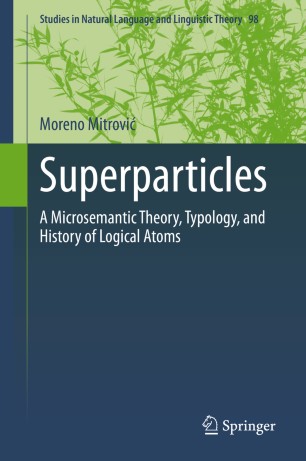

Most ebook files are in PDF format, so you can easily read them using various software such as Foxit Reader or directly on the Google Chrome browser.
Some ebook files are released by publishers in other formats such as .awz, .mobi, .epub, .fb2, etc. You may need to install specific software to read these formats on mobile/PC, such as Calibre.
Please read the tutorial at this link: https://ebookbell.com/faq
We offer FREE conversion to the popular formats you request; however, this may take some time. Therefore, right after payment, please email us, and we will try to provide the service as quickly as possible.
For some exceptional file formats or broken links (if any), please refrain from opening any disputes. Instead, email us first, and we will try to assist within a maximum of 6 hours.
EbookBell Team

4.8
44 reviewsThis book is all about the captivating ability that the human language has to express intricately logical (mathematical) meanings using tiny (microsemantic) morphemes as utilities. Languages mark meanings with identical inferences using identical particles and these particles thus creep up in a wide array of expressions. Because of their multi-tasking capacity to express seemingly disparate meanings, they are dubbed Superparticles. These particles are perfect windows into the interlock of several grammatical modules and the nature of the interaction of these modules through time. With a firm footing in the module where grammatical bones are built and assembled (narrow morpho-syntax), superparticles acquire varied interpretation (in the conceptual-intentional module – semantics) depending on the structure they fea- ture in. What is more, some of the interpretations these particles trigger are inferential and belong, under the standard account, to the realm of pragmatics. How can such tiny particles, rarely exceeding a syllable of sound, have such powerful and over-arching effects across the inter-modular grammatical space? This is the Platonic background against which this book is set.